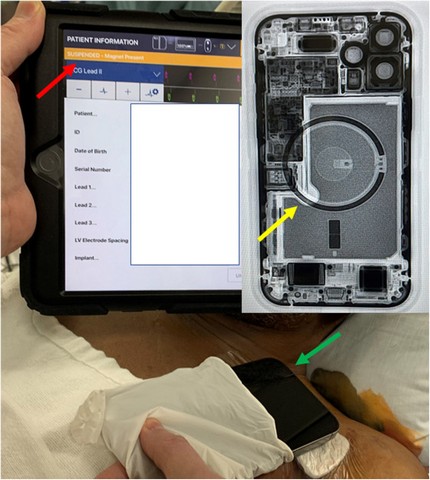Now, if you are unaware, Apple brought MagSafe to iPhones with the introduction of the iPhone 12 series. As a result, the Cupertino giant integrated a ton of magnets in a circular array inside these new devices to make them work with compatible MagSafe accessories (that also contain magnets aligned in a similar way). So, according to recent reports, Apple has recently updated a support document that informs users about the potential effects of the magnets inside its MagSafe-supported devices and the MagSafe accessories. The official document regarding the information came almost three weeks after doctors reported about the reactions of medical devices to iPhones’ MagSafe magnets. “All ICD’s have an in-built switch (Reed switch, Hall-effect sensors, Giant magneto sensitive resistors or coils) which respond to an externally applied magnetic field. When an external magnet is applied to a defibrillator, high voltage shock therapy for ventricular tachycardia and ventricular fibrillation is suspended. It has been estimated that a magnetic field stronger than 10 Gauss is strong enough to activate these switches,” reads the report by the doctors. Device Programmer showing suspension of ICD therapies (orange bar, red arrow) with iPhone 12 laying over patient’s chest (green arrow) and Fluoroscopy of iPhone 12 showing the circular magnet array (yellow arrow) | Credit: Heart Rhythm Society Following this report, Apple is now warning users to keep their MagSafe accessories and the MagSafe-supported devices at a safe distance from medical devices such as implanted pacemakers and defibrillators that “might contain sensors that respond to magnets and radios when in close contact.” “To avoid any potential interactions with these devices, keep your iPhone [12] and MagSafe accessories a safe distance away from your device (more than 6 inches/ 15cm apart or more than 12 inches / 30 cm apart if wirelessly charging),” reads the support document by Apple. So if you want your medical devices to work properly, maintain the recommended distance. However, if you are unsure if your medical devices will react or respond negatively around the MagSafe magnets, then Apple recommends consulting your doctor or the manufacturer of the medical device to get a better idea about the issue.
